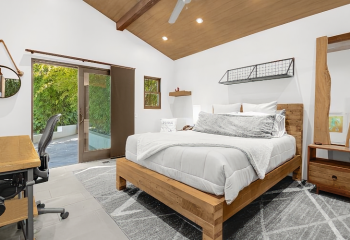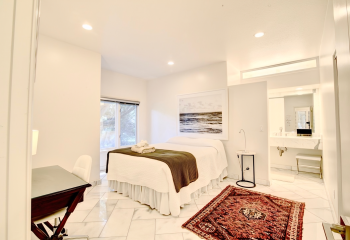Learn More

Best Rehabs Accepting BlueCross BlueShield
Our independent research team continuously gathers and evaluates data to compile an unbiased and thorough list of the best mental health and addiction treatment centers with BlueCross BlueShield coverage.
Featured Treatment Centers Accepting BlueCross BlueShield
Ad Disclosure
1802 Best Rehabs Accepting BlueCross BlueShield
How We Sort Our Results
How We Sort Our Results
How We Sort Our Results
Learn More
More About Rehabs Accepting BlueCross BlueShield
Rehab that Accepts Blue Cross Blue Shield
Blue Cross Blue Shield (BCBS) is one of the largest health insurance providers in the United States, and many drug and alcohol rehab centers accept BCBS insurance . However, it can be difficult to know which centers are the best fit for your specific needs.
We will provide a comprehensive guide to rehabilitation centers that accept Blue Cross Blue Shield insurance, including information on the types of treatment offered, and amenities.
About Blue Cross Blue Shield
Founded in Texas to make healthcare more affordable, BCBS has been around since 1929. It began as a partnership between hospitals and their patients. In the 1940s, Blue Cross merged with Blue Shield to grow their reach. By the early 2000s, more than 100 million members made up BCBS.
BCBS was also the only insurer able to process Medicare claims in 1966, helping over 5 million seniors become Medicare patients.
Today, Blue Cross Blue Shield continues to be a leading health insurance company, offering a range of insurance products and services to millions of people across the United States.
Blue Cross Blue Shield Insurance Plan Options
BCBS, like most health insurance companies, offers coverage for substance abuse treatment . This can include inpatient and outpatient treatment, counseling, and medication-assisted treatment. BCBS has their own recognition award for patient-focused rehabs, called Blue Distinction™.
The specific details of BCBS's substance abuse coverage will depend on the specific plan you have. You can contact Blue Cross Blue Shield directly or look at your plan's coverage details online to learn more about what substance abuse services it covers.
Blue Cross Blue Shield offers open-access plans, copay only plans, and high-deductible plans.
- Open-access plans allow you to choose your doctors; they don’t require a referral, and they don’t require a primary care physician.
- Copay-only plans will guarantee that your costs after paying your deductible are only copays, with primary care physician visits and generic drugs covered before you hit your deductible.
- High-deductible plans offer preventative care services before the deductible is met, and some coverage through a primary care physician before the deductible is met (with copay), and the option of a health savings account. To view your plan’s details, you can log into the member website.
- Bronze plans—These plans have lower premiums but have the highest deductibles, which will result in higher out-of-pocket expenses. BCBS covers about 60% of the cost of care services after the deductible is met.
- Silver plans—These plans cost more in premiums but have lower deductibles and have lower out-of-pocket expenses than bronze plans. BCBS pays about 70% of the cost of care services after the deductible is met.
- Gold plans—These plans have the highest premiums but have the lowest deductibles and will have the lowest out-of-pocket expenses. BCBS pays about 80% of the cost of care after the deductible is met.
Blue Cross Blue Shield, Medicare and Medicaid
BCBS Medicare plans are alternatives to Original Medicare, which is the federal health insurance program for people who are 65 or older, as well as people with certain disabilities. BCBS Medicare Advantage plans provide the same benefits as Original Medicare, but often with additional benefits, such as vision, hearing, and dental coverage. Blue Cross Blue Shield also offers Medigap (Medicare Supplement) plans, which can be used to help cover the costs not covered by Original Medicare.
Blue Cross Blue Shield Medicaid plans are offered in some states to individuals who are eligible for Medicaid, which is a joint federal and state program that provides health coverage to people with low incomes. BCBS Medicaid plans typically cover a range of health services, including preventive care, doctor visits, hospital stays, and prescription drugs.
The specifics of what is covered by BCBS Medicare and Medicaid plans will vary depending on the plan you have and the state you live in. To find out more about what is covered by BCBS's Medicare and Medicaid plans, you can look at your plan's coverage details or contact Blue Cross Blue Shield directly.
Addiction Treatment Options
Blue Cross Blue Shield for Medical Detox
BCBS typically covers medically-supervised detox programs, which involve the use of medication and other treatments to help individuals manage the physical and emotional symptoms of withdrawal from drugs or alcohol. In some cases, BCBS may also cover the cost of inpatient or residential detox programs, which provide a more intensive level of care and support.
Blue Cross Blue Shield and Medically-Assisted Treatment
MAT is a form of rehab that combines medication with therapy to help those recovering from addiction. BCBS insurance covers many forms of MAT, including methadone and buprenorphine.
Blue Cross Blue Shield Coverage for Residential Treatment
Inpatient treatment is the most intensive form of rehab , and it typically involves staying at the center for several weeks or months. Inpatient treatment is ideal for those with severe addiction or mental health issues.
Intensive Outpatient Programs (IOP)
Intensive outpatient treatment is less intensive than inpatient treatment, and it typically involves visiting the center for a few hours a day. Outpatient treatment is ideal for those who need to continue working or taking care of their family while in rehab.
Partial Hospitalization Programs (PHP)
Partial hospitalization typically involves staying at the center for several hours a day. Partial hospitalization is ideal for those who need a higher level of care than outpatient treatment but do not require 24-hour supervision.
Blue Cross Blue Shield Rehab Coverage FAQs
Does Blue Cross Blue Shield insurance cover drug and alcohol rehab?
BCBS insurance may cover drug and alcohol rehab, but the coverage depends on your insurance plan and policy. BCBS plans typically have benefits for addiction treatment, including inpatient and outpatient rehab, counseling, and therapy.
How can I verify my Blue Cross Blue Shield insurance benefits?
You have several ways to verify your BCBS insurance benefits
Check your insurance card Your BCBS insurance card will typically have information about your plan, including your copayment amounts, deductibles, and the services that are covered by your plan.
Log into your online account If you have an online account with BCBS, you can log in to view your insurance information, including your coverage details, claims history, and copayment amounts.
Contact customer service You can call BCBS’s customer service department to speak with a representative who can provide information about your coverage, including what services are covered and what your out-of-pocket expenses may be.
Check your plan's summary of benefits BCBS provides a summary of benefits for each of its insurance plans, which you can view online or request a printed copy of. The summary of benefits provides an overview of your plan's coverage, including what services are covered, what your out-of-pocket expenses may be, and any limitations or exclusions that apply.
Ask your healthcare provider If you have any questions about your coverage, you can also ask your healthcare provider. They may be able to provide information about what services are covered by your BCBS insurance plan and what your out-of-pocket expenses may be.
Does Blue Cross Blue Shield cover outpatient addiction treatment?
BCBS typically covers a range of outpatient treatments for substance abuse, including individual and group therapy, medication-assisted treatment, and support groups. Coverage may also include access to a network of licensed mental health and addiction specialists.
Does Blue Cross Blue Shield Cover inpatient drug and alcohol rehab?
Yes, BCBS insurance plans typically cover the cost of inpatient drug and alcohol rehab. The extent of coverage for inpatient rehab will depend on the specific BCBS insurance plan you have and any exclusions or limitations that apply to that plan.
Does Blue Cross Blue Shield cover inpatient mental health?
Yes, BCBS insurance plans typically cover inpatient mental health treatment for conditions such as depression, anxiety, and other mental health conditions. The extent of coverage for inpatient mental health treatment will depend on the specific BCBS insurance plan you have and any exclusions or limitations that apply to that plan.
Do treatment centers need to be In-Network?
Blue Cross Blue Shield insurance plans may cover out-of-network rehab, but the specific coverage will depend on the individual's insurance plan and policy. Some BCBS plans have out-of-network benefits that allow members to receive coverage for services from providers that are not in the plan's network. However, this coverage is usually at a lower level than in-network coverage, and members may have to pay more out-of-pocket costs.
How much does Blue Cross Blue Shield insurance cover?
The amount that BCBS insurance covers will depend on several factors, including
The type of insurance plan you have BCBS offers a range of insurance plans, including individual and family plans, employer-sponsored plans, Medicare plans, and Medicaid plans. The coverage details will vary depending on the plan you have.
The type of health service you need BCBS insurance plans typically cover a range of health services , including preventive care, doctor visits, hospital stays, and prescription drugs. However, the specifics of what is covered and to what extent will vary depending on your plan.
Your annual deductible A deductible is the amount you pay out-of-pocket each year before your insurance begins to cover the costs of your care. Deductibles can vary depending on your insurance plan and the type of care you need.
Your copayments and coinsurance In addition to a deductible, you may also be responsible for copayments (a set amount you pay for a service) and coinsurance (a percentage of the cost of a service that you pay).
It’s important to note that BCBS insurance plans may also have limits on the amount of coverage available for certain types of services or treatments. To find out how much your BCBS insurance plan covers, you can look at your plan's coverage details or contact Blue Cross Blue Shield directly .
How do I pay for costs not covered by Blue Cross Blue Shield insurance?
If you have received health services that are not covered by your BCBS insurance plan, you may be responsible for paying for those costs out of pocket. There are several options for paying for these costs, including
Paying directly You can pay the healthcare provider directly for the costs that are not covered by your insurance plan.
Using a health savings account (HSA) or flexible spending account (FSA) If you have an HSA or FSA, you can use these tax-advantaged accounts to pay for out-of-pocket healthcare expenses.
Applying for financial assistance Depending on your financial situation, you may be eligible for financial assistance from the healthcare provider or a government program.
Negotiating with the healthcare provider In some cases, you may be able to negotiate a payment plan with the healthcare provider to help make the costs more manageable.
It is important to understand that the exact options available to you will depend on the type of healthcare services you received, the cost of those services, and your financial situation. If you have questions about paying for costs not covered by your BCBS insurance plan, you may want to contact Blue Cross Blue Shield or the healthcare provider directly.
How is a Blue Cross Blue Shield HMO different from a PPO?
BCBS HMO (Health Maintenance Organization) and PPO (Preferred Provider Organization) are both types of health insurance plans offered by BCBS, but they differ in how they handle healthcare providers and costs.
In a Blue Cross Blue Shield HMO, you typically choose a primary care physician (PCP) who acts as a gatekeeper to the healthcare system. To see specialists or receive treatments, you usually need a referral from your PCP. Additionally, HMOs usually have a smaller network of healthcare providers, and you may need to pay more if you receive care outside of the network.
In a Blue Cross Blue Shield PPO, you have more flexibility in choosing healthcare providers without the need for referrals. PPOs often have a larger network of healthcare providers, but you may need to pay more if you receive care outside of the network.
When it comes to costs, HMOs often have lower monthly premiums and out-of-pocket costs than PPOs. However, with a PPO, you may have more flexibility to choose your healthcare providers, which can be an advantage if you value having more control over your healthcare decisions.
It is important to consider your individual needs and preferences when choosing between a Blue Cross Blue Shield HMO and PPO. You can also compare the features and costs of different plans to determine which plan is the best fit for you.
Can you get a single case agreement with Blue Cross Blue Shield?
Yes, it is possible to request a single case agreement (SCA) with BCBS for coverage of a specific medical treatment or procedure (such as inpatient drug and alcohol rehab) that is not otherwise covered by your insurance plan. An SCA is a request for a one-time exception to BCBS's usual coverage policies.
To request an SCA with BCBS, you will typically need to provide medical documentation to support your case and demonstrate that the treatment or procedure is medically necessary. Blue Cross Blue Shield will then review your request and make a determination about whether to grant the SCA.
It is important to note that SCAs are not guaranteed and are subject to approval by Blue Cross Blue Shield. Additionally, the decision to grant an SCA is based on a number of factors, including medical necessity, cost, and alignment with BCBS's coverage policies.
If you are interested in requesting an SCA with Blue Cross Blue Shield, you can contact BCBS's customer service department to learn more about the process and what information you will need to provide.
Explore Top Treatment Destinations
Residential rehab offers you or your loved one the opportunity to start anew in a setting tailored to your needs. With a variety of available options, one is sure to be perfect for you.














































































































